The best Nvidia graphics card in 2025: top picks from Team Green for gaming, creating, and more
Our top picks for the best Nvidia graphics card
While the next generation of graphics cards isn’t far off – which will see Nvidia Blackwell pitted against AMD RDNA 4 – in the current generation of GPUs, Nvidia has done pretty well for itself, albeit with some obvious weaknesses.
Nvidia has definitely owned the top-end with the mighty RTX 4090, and indeed RTX 4080 Super, and Team Green also has some very compelling mid-range offerings too (particularly in the upper-mid-range space).
However, AMD graphics cards have grabbed some of the most important spots in our ranking of the best GPUs, including the best overall graphics card and the top budget offering. Certainly, the lower-end of the market is a space where Nvidia hasn’t fared so well, but there’s still a sound budget choice for those who want to go with Team Green rather than Red.
Let’s forge on and present you with our top picks for the best Nvidia graphics cards around right now. Whether you want a killer GPU for 4K gaming, or creative work, or a more affordable card, from either the current-generation – or something from the last-gen – we’ve got you covered.
The quick list
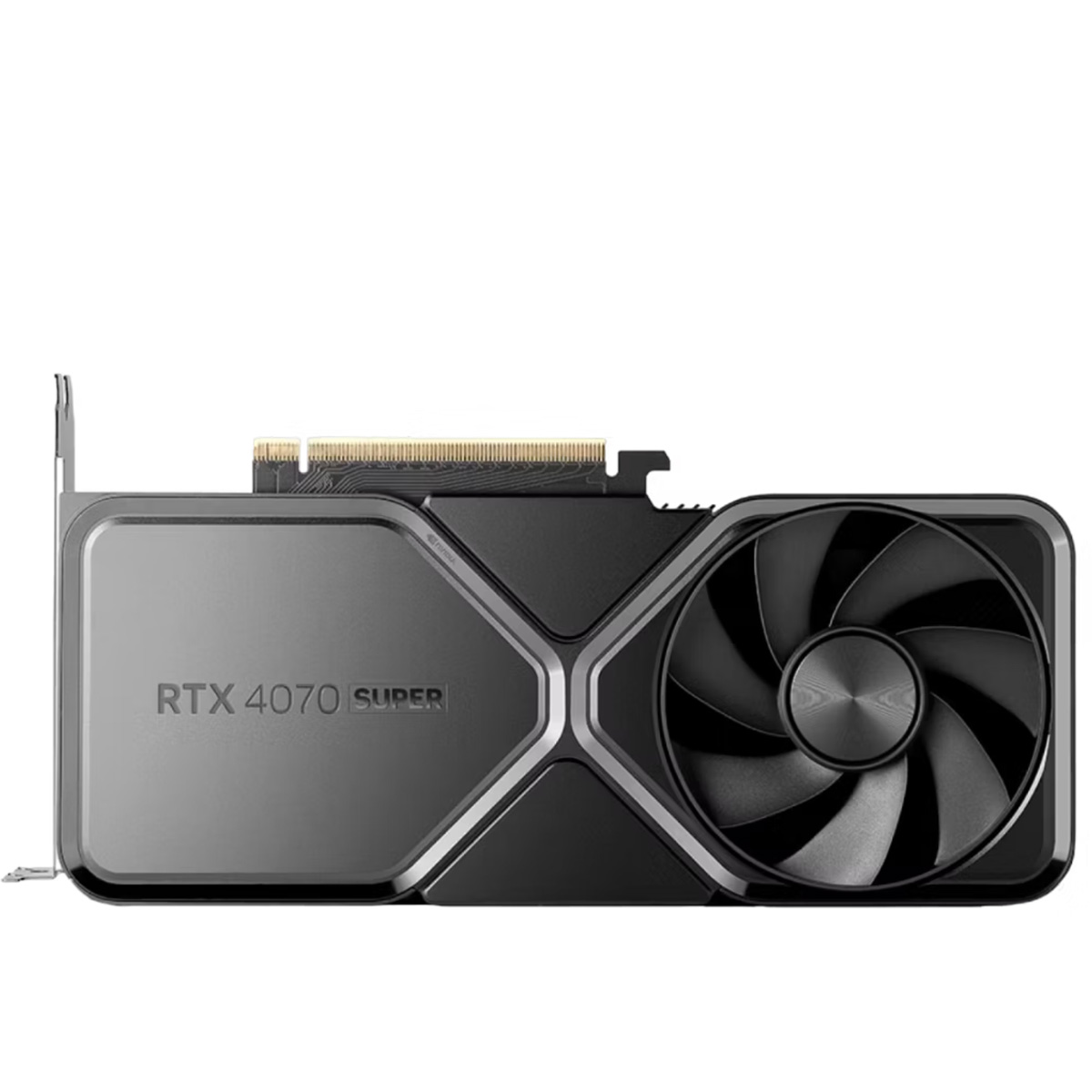
The Nvidia GeForce RTX 4070 Super is the best graphics card from Team Green for most people, thanks to its powerful performance and great price. It's got some healthy competition from AMD's latest Radeon lineup, but the 4070 Super definitely has the juice.
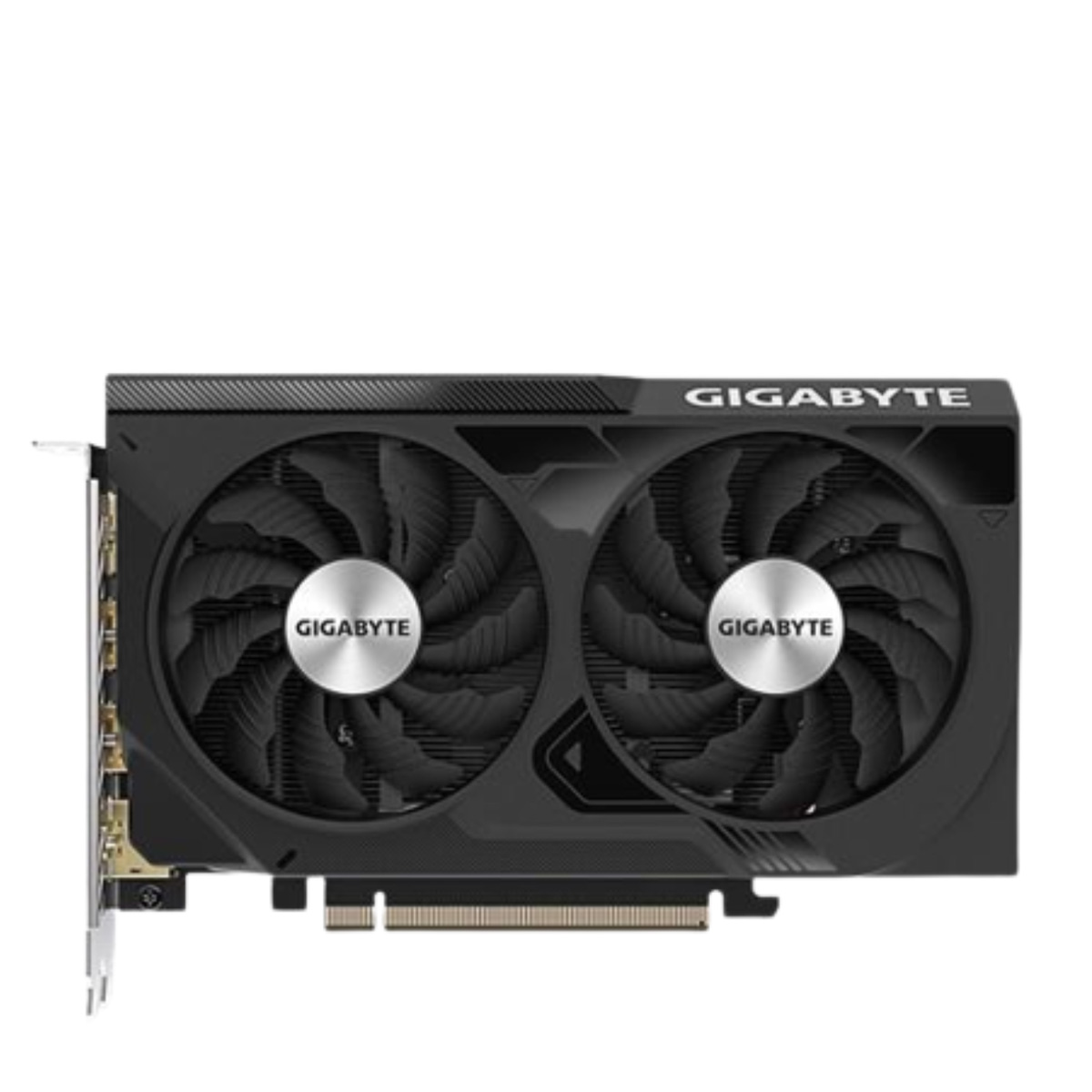
While the Nvidia RTX 4060 doesn't have the 'Wow!" factor that the Nvidia RTX 3060 Ti did, it's still the best 1080p graphics card on the market, so for a lot of gamers out there, this just might be the card you've been looking for to upgrade a budget gaming rig in 2025.
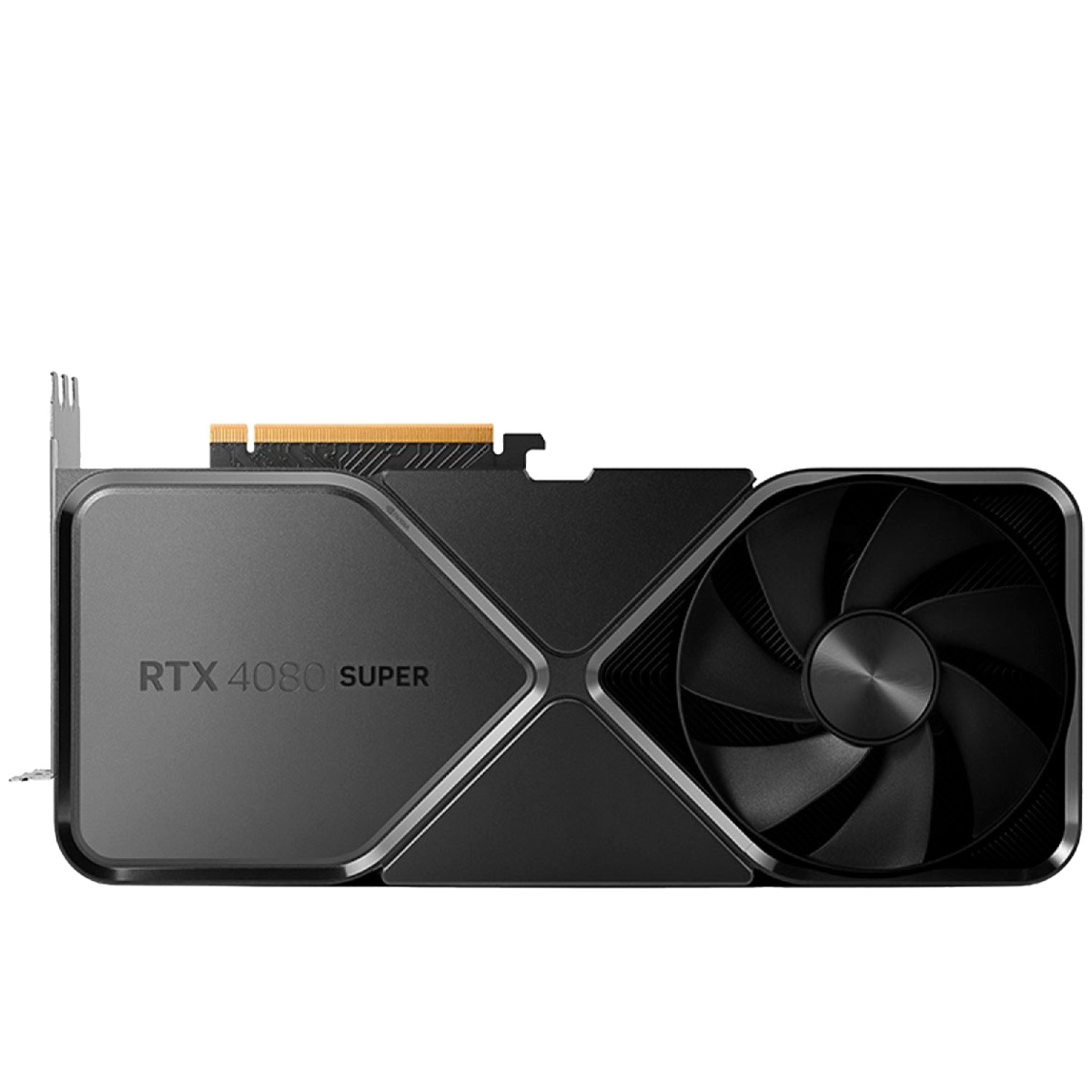
The Nvidia RTX 4080 Super offers near-RTX 4090 4K gaming performance at a significantly lower price, only about 8% slower but around 40% cheaper. While still expensive, it's a more cost-effective option for 4K gaming, making it a smart high-end choice.
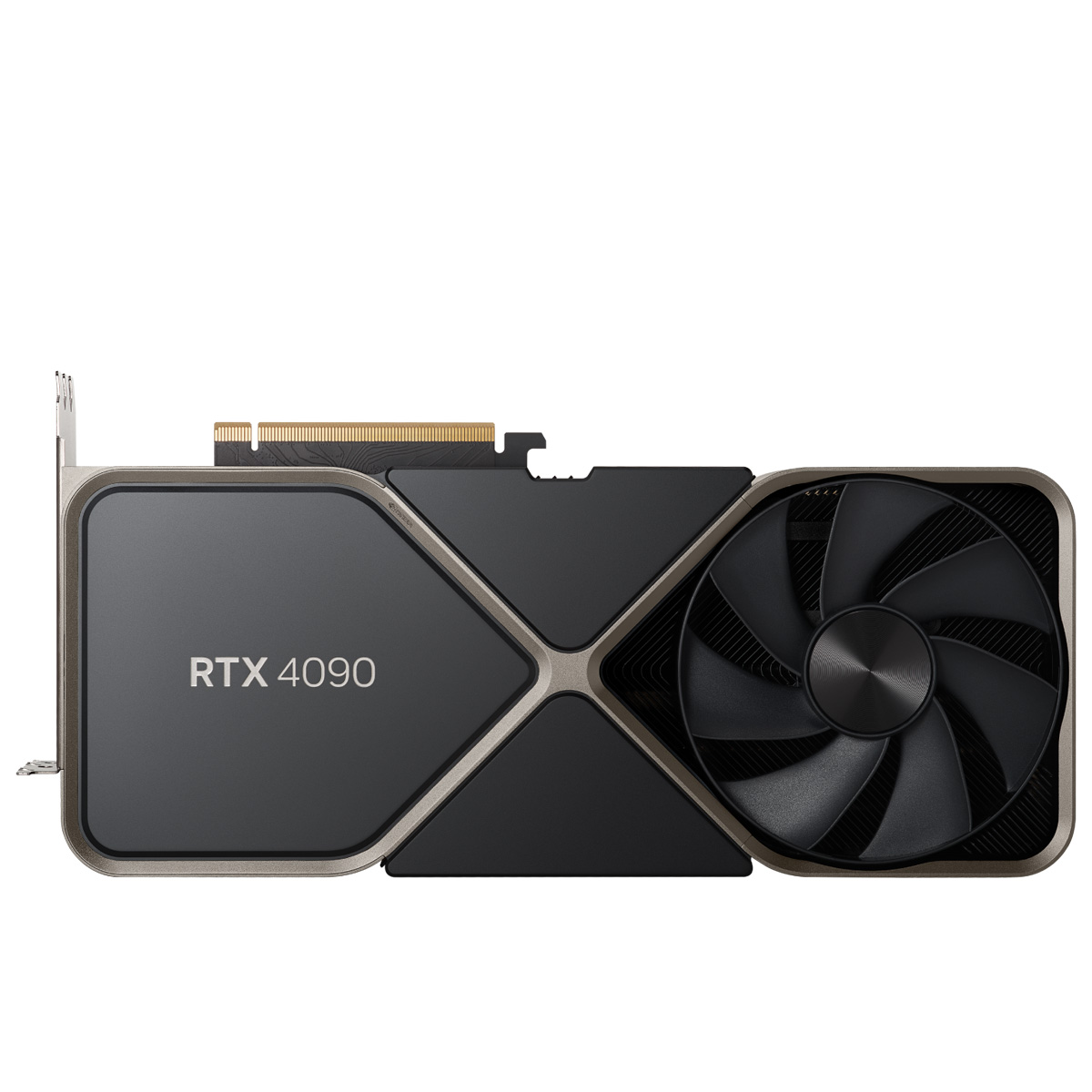
The Nvidia RTX 4090 is the most powerful GPU for consumers, ideal for creative workloads. In tests, it nearly doubles the performance of the RTX 3090 Ti, making it worth the investment for creators. However, with prices above MSRP and the RTX 5090 potentially arriving soon, waiting might be wise.
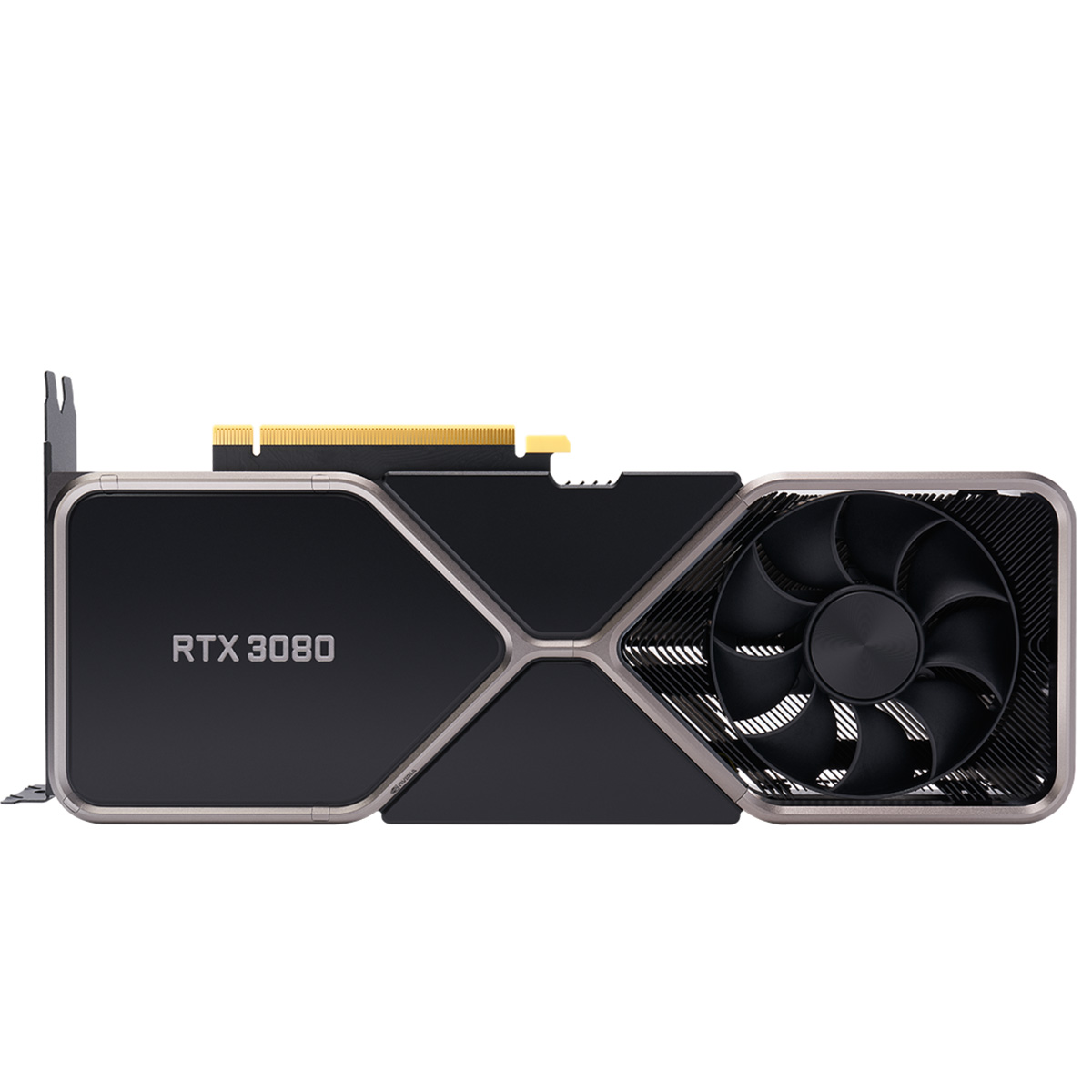
The Nvidia GeForce RTX 3080 is a top choice for last-gen gaming, offering a major performance leap at a more accessible price than the RTX 3090. Delivering 50-80% better performance than the RTX 2080, it excels at 4K gaming with impressive efficiency.
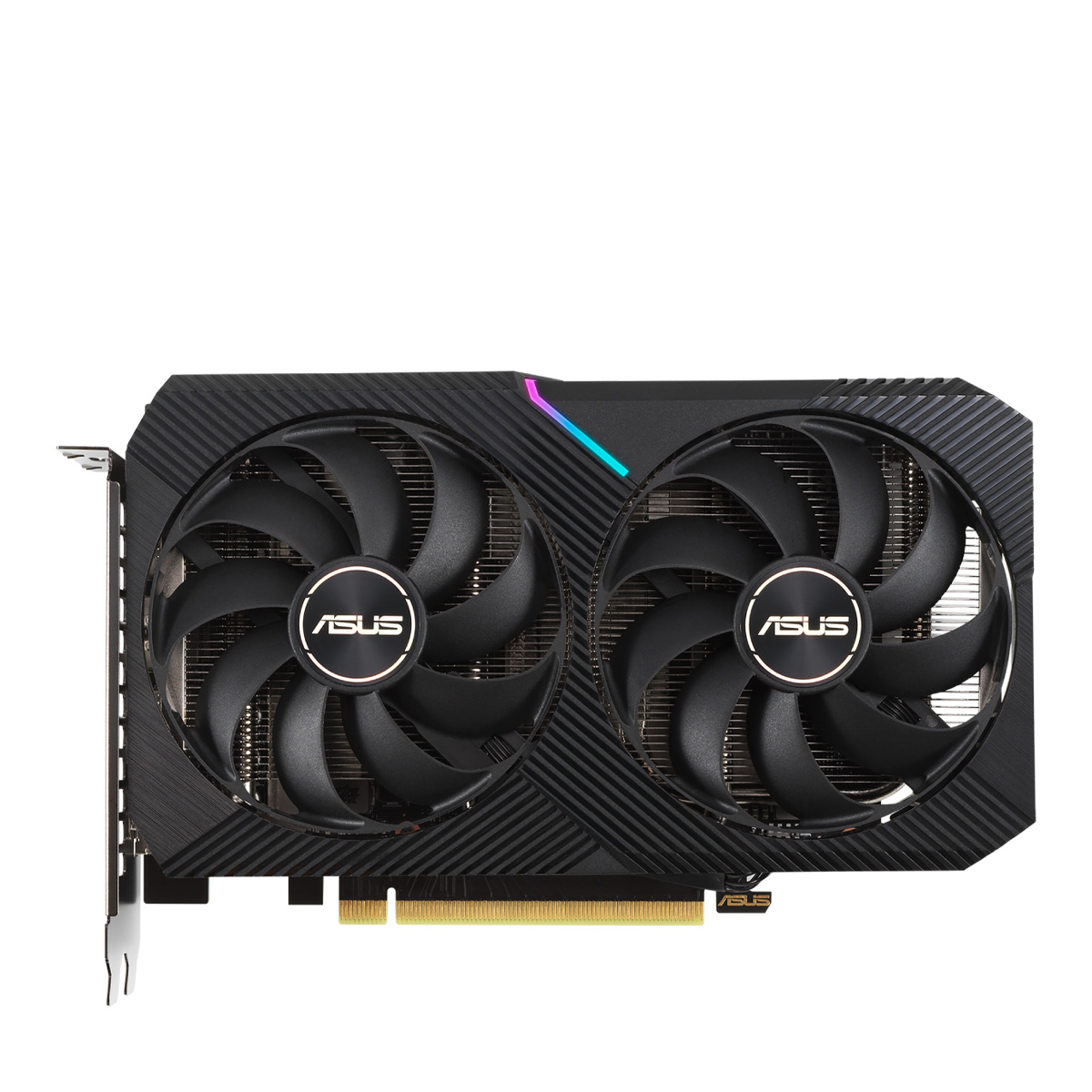
The Nvidia RTX 3050 is a budget-friendly GPU, now available at 20-25% below its original price. While it has a mixed reputation and isn’t as strong as AMD’s RX 6600, it offers decent 1080p performance, Nvidia's DLSS, and good driver support.
The best Nvidia graphics cards in 2024
Why you can trust TechRadar
Below you'll find my our top picks for the best Nvidia graphics card of the year. We've tested each card extensively, so you can trust that we're only recommending the best options on the market for your needs and budget.
The best Nvidia graphics card overall
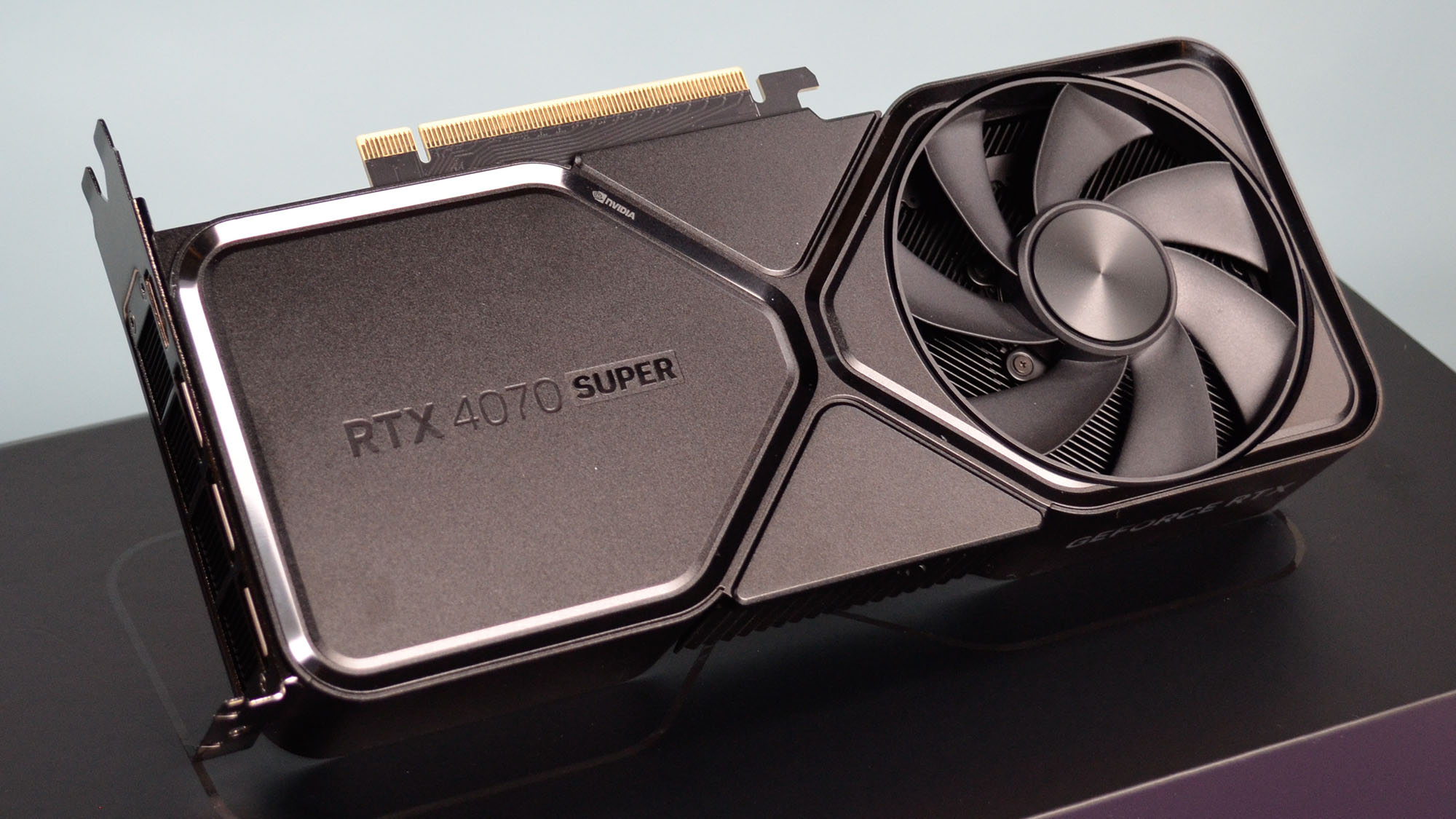
Specifications
Reasons to buy
Reasons to avoid
Nvidia seriously strengthened the Lovelace line-up when it released the Super spin on the RTX 4070 back at the start of 2024, moving the value dial considerably. The RTX 4070 Super offered appreciably better performance than the vanilla RTX 4070 while debuting at the same price point.
Indeed, when we reviewed the RTX 4070 Super, we declared that the graphics card was the new mid-range champ, with an important caveat, mind – it doesn’t offer the best bang-for-buck compared to some AMD rivals in this space, not for PC gamers anyway.
It does, however, boast excellent performance levels overall, and provides buttery smooth frame rates with PC games in 1440p – though in 4K gaming, the 12GB of VRAM is a sticking point – great ray tracing chops, DLSS 3, and laudable performance for creative work, too.
In short, it’s a very well-balanced mid-range offering, and taking everything into account, the RTX 4070 Super is the best overall graphics card from Nvidia you can buy right now.
Read the full Nvidia GeForce RTX 4070 Super review
The best budget Nvidia graphics card
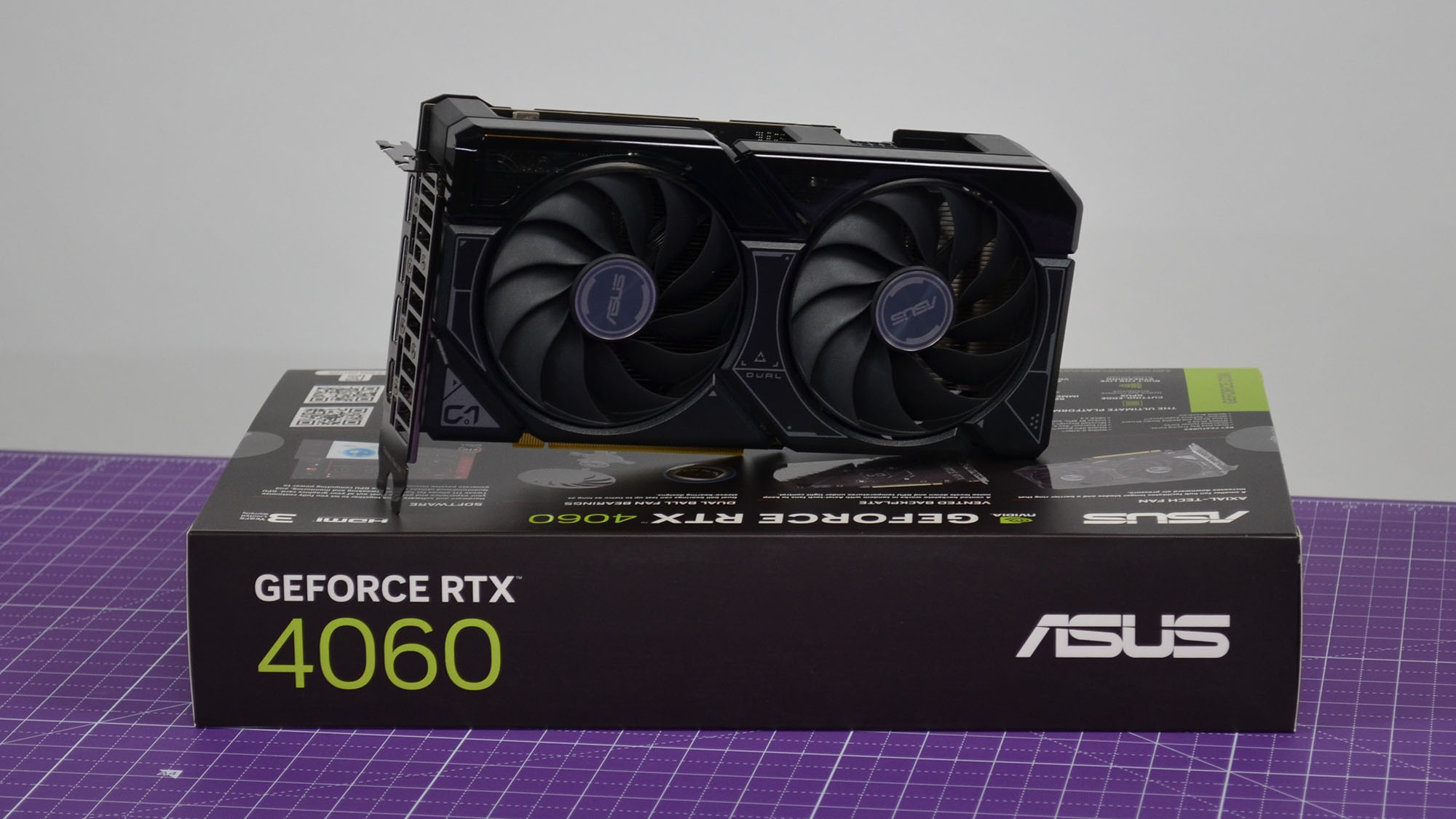
Specifications
Reasons to buy
Reasons to avoid
If the RTX 4070 Super is too rich for your blood, and you want good performance with spending a large amount of cash, the Nvidia RTX 4060 is the GPU you should be looking at. Indeed, for those gaming at 1080p, this is absolutely the best option, dollar-for-dollar, that you can get, beating out the competition from AMD, too.
The RTX 4060’s performance in gaming at 1080p is superb, and it can handle 1440p gaming with some aplomb, too. The downside with the RTX 4060 is that it’s not exactly cheap – affordable would be a better word – and the price hasn’t fallen much from the MSRP since launch. In some ways, though, that is a measure of the popularity of this GPU.
Those looking for a truly wallet-friendly GPU, then, would be better served by either considering AMD, or going for a last-gen Nvidia graphics card (a choice that we’ll come to later).
We should also note here: don’t be tempted by the RTX 3060 12GB (which still sells well) as an affordable alternative to the RTX 4060 – it’s a trap (admiral). There’s lots of chatter online about this giving you 12GB of VRAM, compared to the 8GB of the RTX 4060, and how this makes the older card a better choice for gaming in some ways. But that’s not the case looking at the overall picture, we assure you – get yourself the RTX 4060 as it’s approaching 20% faster (overall), has DLSS 3 frame generation, is much more power-efficient, and is a step on with driver updates (meaning it won’t be obsolete so soon, driver-wise).
Whatever benefit you might eke out with the 12GB of VRAM in some games (and settings) – which admittedly is a bit, in certain niche scenarios – is not worth it for the small saving the RTX 3060 12GB gives you at current pricing.
Read the full Nvidia GeForce RTX 4060 review
The best 4K graphics card from Nvidia
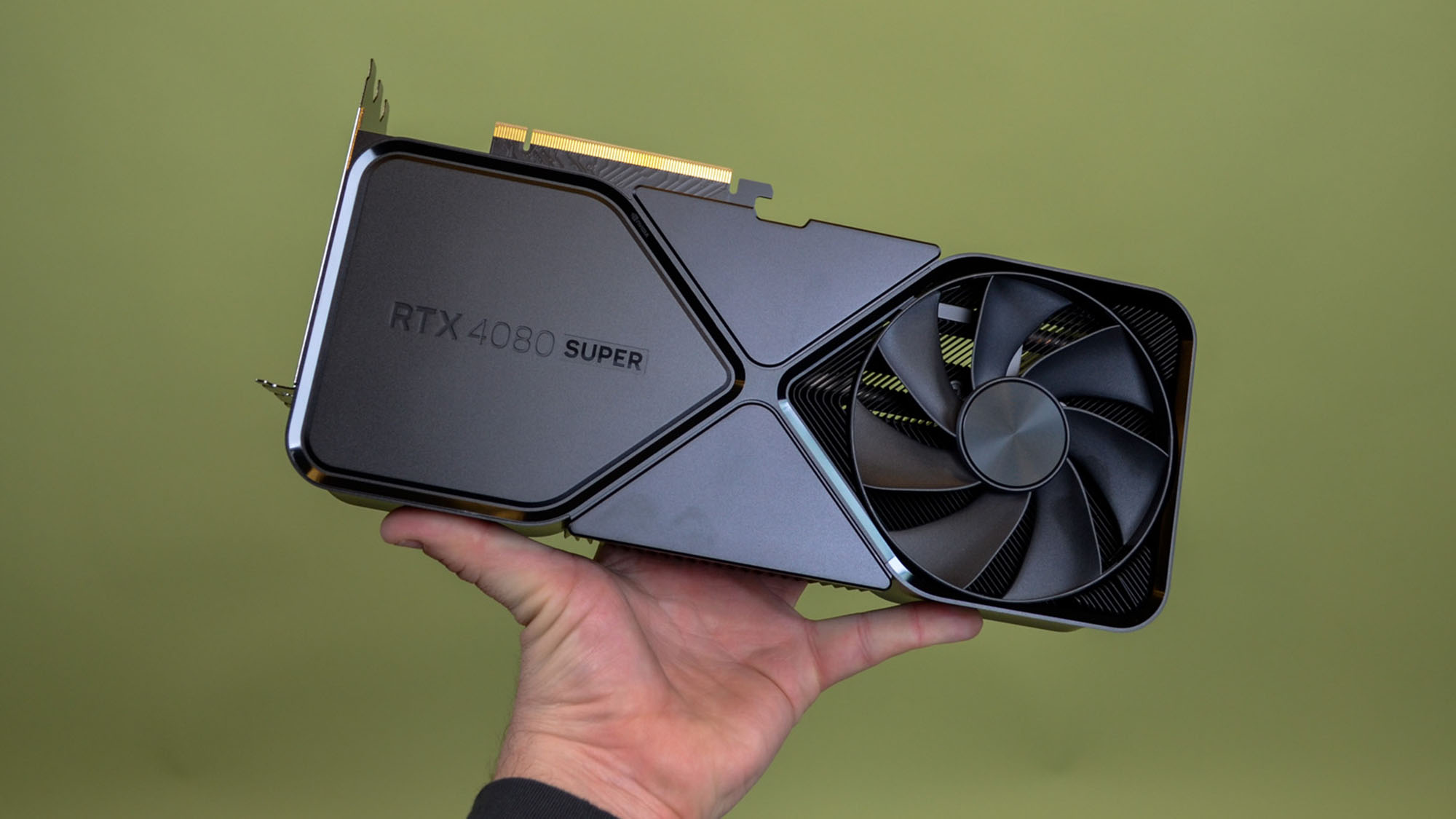
Specifications
Reasons to buy
Reasons to avoid
Need a powerhouse 4K GPU? Nvidia’s RTX 4080 Super is the graphics card to drive your shiny 4K monitor (or indeed your 4K TV, if you’ve hooked up your PC to that via a long HDMI lead, or maybe Nvidia Shield TV).
Really, all we need say about this GPU is that the RTX 4080 Super provides very similar 4K gaming performance to the mighty RTX 4090, just at a much lower price point.
In our review, we found that the RTX 4080 Super was only about 8% slower than the 4090 when playing PC games at 4K, yet it’s 40% cheaper going by their respective MSRPs – and very nearly half the cost going by current pricing, in fact. So, unless you absolutely need every frame of performance for your 4K gaming sessions at any cost, the RTX 4080 Super makes a whole lot more sense than the RTX 4090.
Granted, all this is relative value proposition, and in absolute terms, the RTX 4080 Super will still blow a big hole in your wallet – but if you want a graphics card that can glide through 4K gaming with ease, you’re inevitably going to be paying big bucks.
Read the full Nvidia GeForce RTX 4080 Super review
The best Nvidia graphics card for creatives
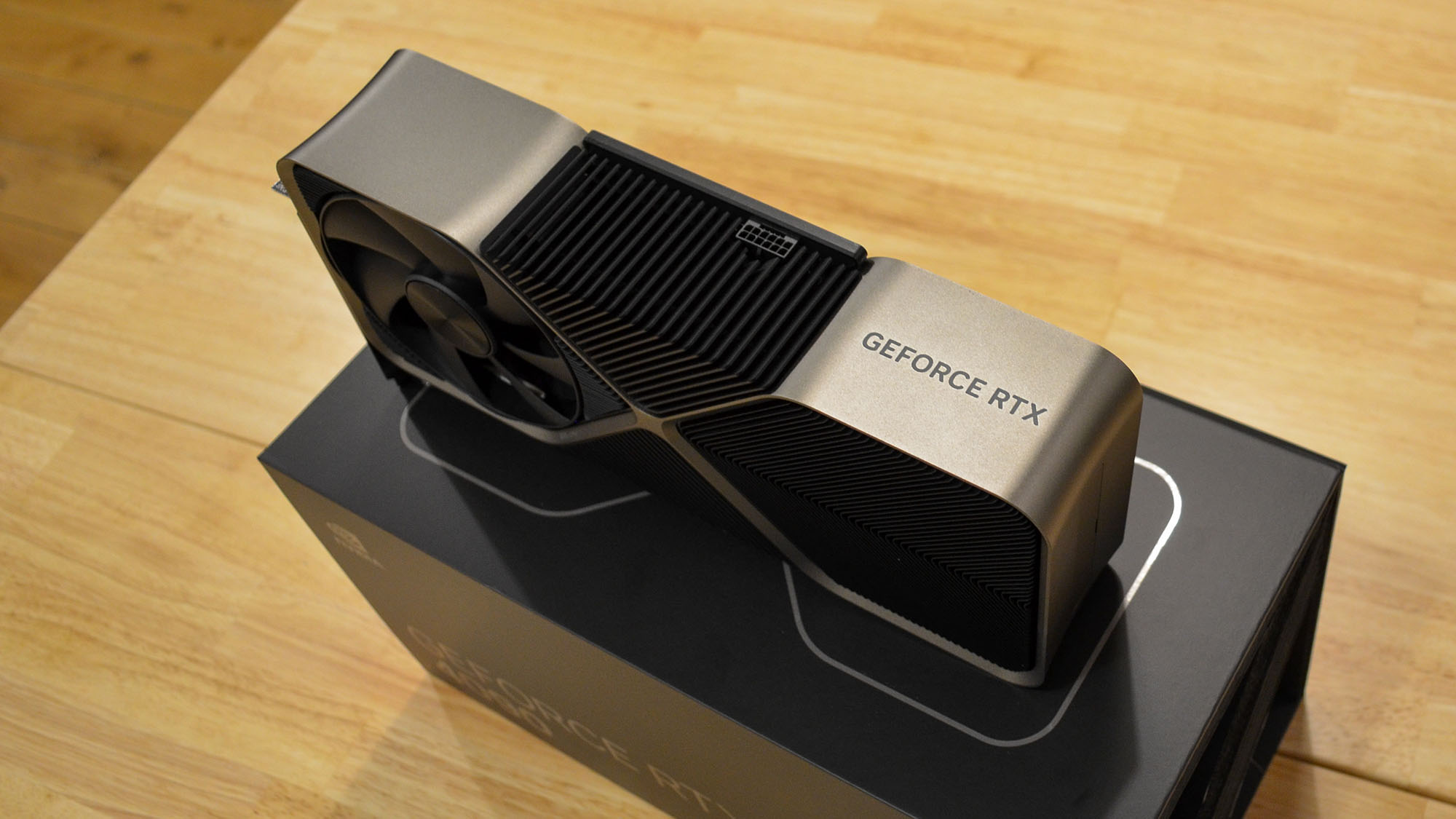
Specifications
Reasons to buy
Reasons to avoid
Nvidia’s flagship RTX 4090 is the most powerful graphics card in its Lovelace line-up – and the most powerful GPU full-stop for consumers. And if you’re needing a card for creative workloads, this is the top pick.
In our review of the RTX 4090 we underlined that this is a dream GPU for creatives, and when the Lovelace flagship arrived, it absolutely blew away the RTX 3090 Ti – to the tune of offering roughly double the performance of the latter in Blender testing, for example.
You’ll obviously get incredible levels of gaming performance too, but as we’ve already touched on, the RTX 4080 Super is not that much slower when playing PC games, and it’s a lot cheaper. For creatives, though, the extra money for the RTX 4090 is worth paying to get the full horsepower required for heavyweight apps.
The note of caution we’d inject here is that the RTX 4090 is currently about 10% above its MSRP, and the RTX 5090 may be arriving soon enough, if rumors are right. Does that make it worth waiting for the doubtless jaw-dropping creative powerhouse that the latter will be? Or the prospect of the RTX 5090 triggering price drops with the RTX 4090? Perhaps…
Read the full Nvidia GeForce RTX 4090 review
The best last-gen Nvidia graphics card
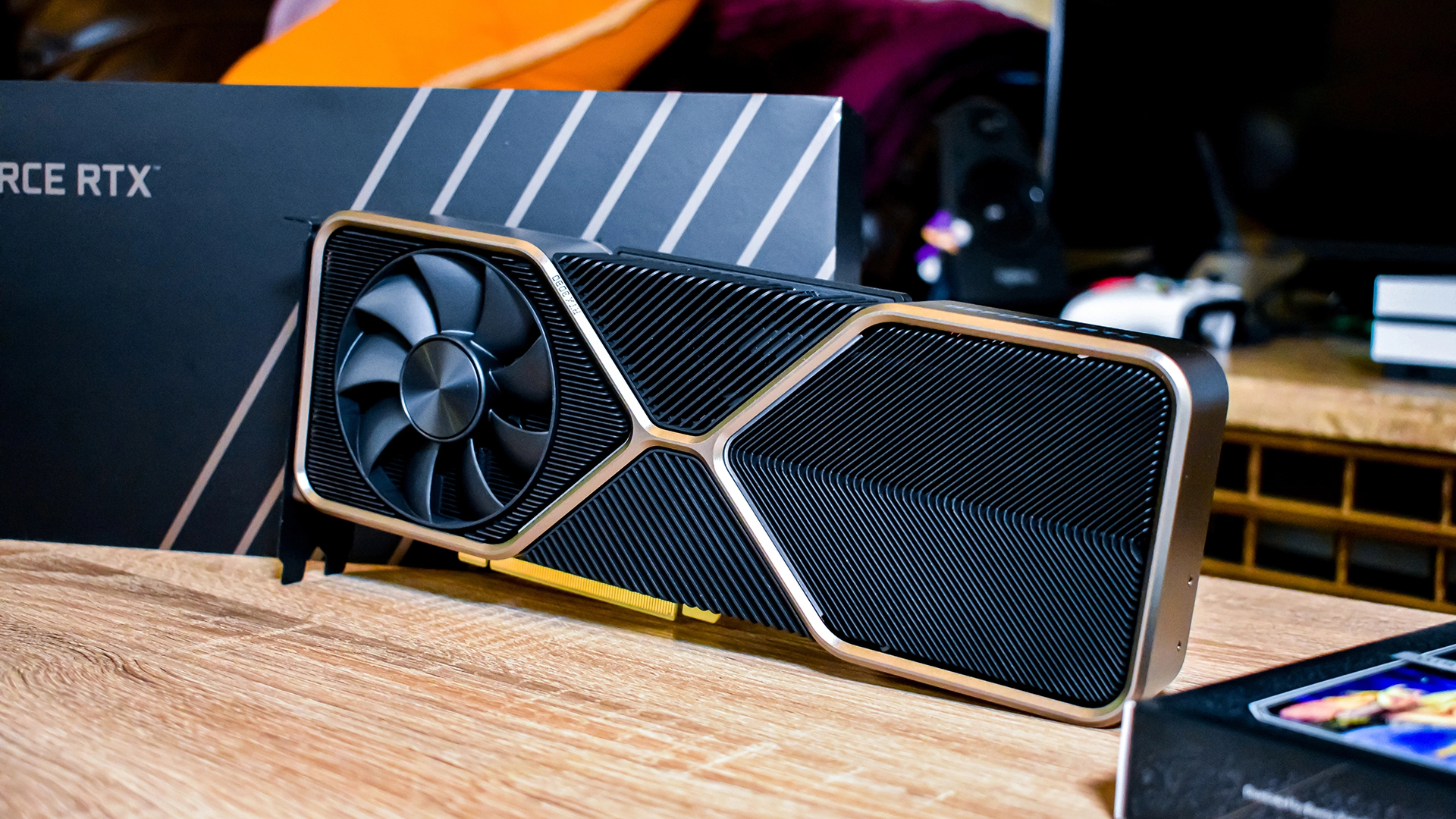
Specifications
Reasons to buy
Reasons to avoid
The Nvidia GeForce RTX 3080 is widely regarded as the best Nvidia graphics card from the last generation, offering a significant leap in performance over its predecessors while not destroying your budget the way the Nvidia RTX 3090 can still do four years after its release.
As part of Nvidia Ampere's launch lineup, the RTX 3080 delivers a substantial boost in 4K gaming capabilities at a price point that, while high, is much more accessible than previous top-tier models, like the Nvidia Titan RTX.
It offers a performance increase of 50-80% over the RTX 2080 and 20-30% over the RTX 2080 Ti, and even though it is a last-gen card and so won't be able to take advantage of the latest Nvidia DLSS 3 technology, it is still more than capable of fantastic gaming performance at 4K.
One of the key advantages of the RTX 3080 over its predecessors is its improved efficiency, utilizing second-generation ray tracing (RT) cores and third-generation Tensor cores for AI workloads, while also doubling the CUDA cores for spectacular rasterization performance.
It also features fast GDDR6X memory and a newly designed cooling system, which combine to offer nearly three times the FP32 throughput compared to the RTX 2080. It might not be the powerhouse that Nvidia Lovelace's flagship cards can be, but it's no chump, and it can still go toe-to-toe with current-gen graphics cards at the same price.
Although the RTX 3080's price starts at $699 for the Founders Edition, aftermarket versions may be pricier due to custom cooling and overclocking, while second-hand or used Nvidia RTX 3080s might be suspect thanks to the cryptobubble that blew up right after its launch, so you'll want to make sure you're only buying a brand new card if you don't trust the source of a used GPU.
Taken together though, its price-to-performance ratio makes the Nvidia GeForce RTX 3080 the best choice for gamers who demand elite-level performance without overspending too much.
Read the full Nvidia GeForce RTX 3080 review
The best last-gen budget Nvidia graphics card
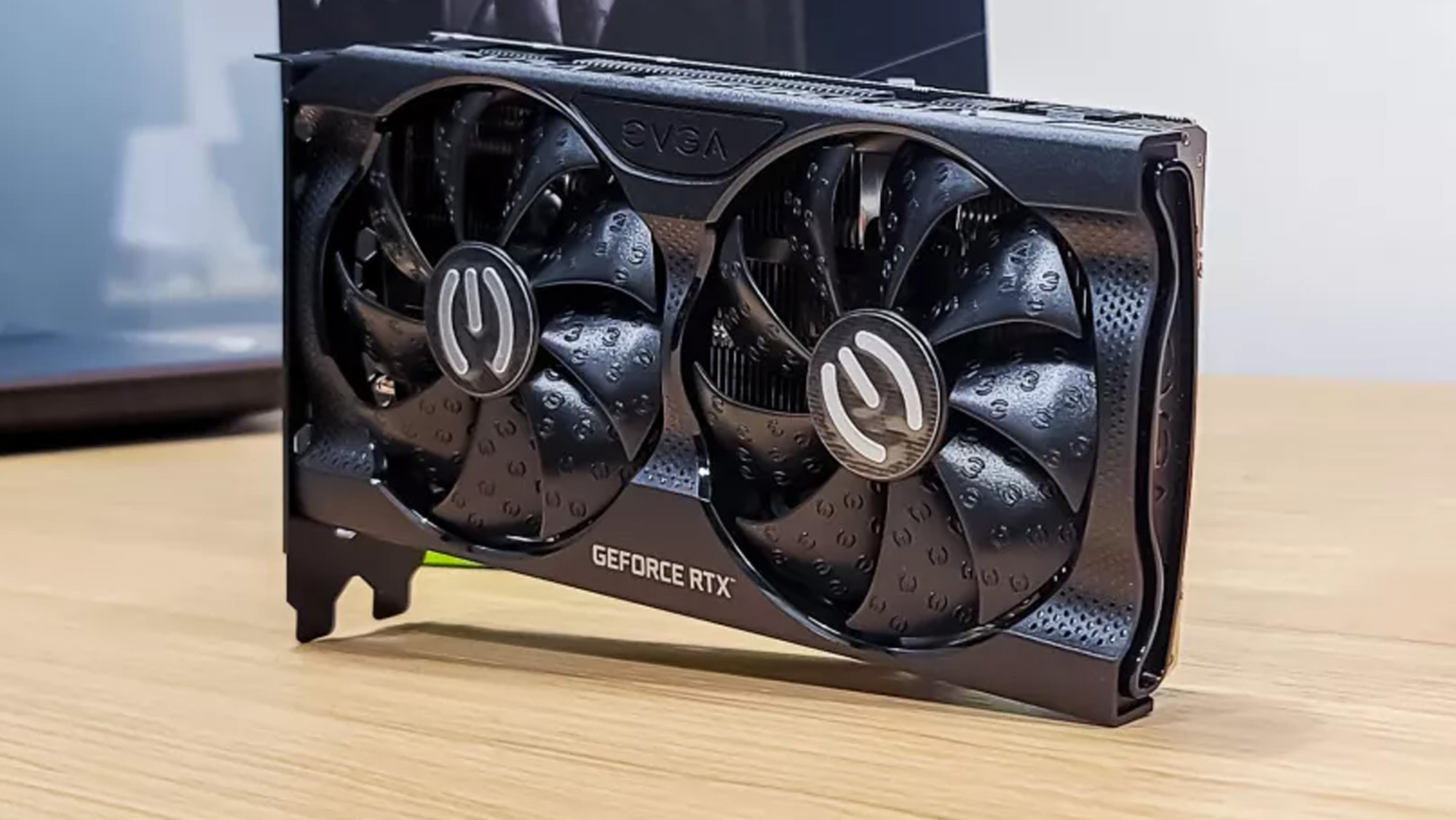
Specifications
Reasons to buy
Reasons to avoid
Our recommendation for those looking for a truly wallet-friendly Nvidia GPU is the RTX 3050. If you mention this last-gen graphics card in any given online forum, mind you, odds are you’ll immediately get pilloried, and face flak from multiple angles along the lines of ‘only an idiot would buy that graphics card’ and so on.
Well, hold up a minute, folks. Yes, the RTX 3050 carries something of a tarnished reputation considering its launch price, but this GPU is now a fair bit cheaper than back then. The 8GB model is now 20% to 25% under its MSRP, and the 6GB spin can be had a fair bit cheaper than that (though we’d go 8GB really, if at all possible).
For the performance on offer, the RTX 3050 is actually a decent enough buy, albeit not an exciting one. The truth is that when it comes to Nvidia GPUs these days, budget options – and we don’t remotely count the RTX 3060 in this bracket, as it’s almost even on price with the RTX 4060 – are seriously thin on the ground. In fact, the RTX 3050 is about all there is left.
And, in all honesty, the RTX 3050 doesn’t fare well when compared to AMD’s side of the budget equation – the RX 6600 is a far more compelling proposition performance-wise for a very similar outlay. But if you want a cheap GPU and prefer Nvidia’s drivers and support, and you want DLSS, then yes – the RTX 3050 delivers solid 1080p performance.
Also, in niche cases, the RTX 3050 6GB could be a worthy buy too – it’s quite a bit cheaper, and some of the compact versions might be a good fit (literally) for a small form-factor or home theater PC.
Read the full Nvidia GeForce RTX 3050 review
best Nvidia graphics card: FAQs
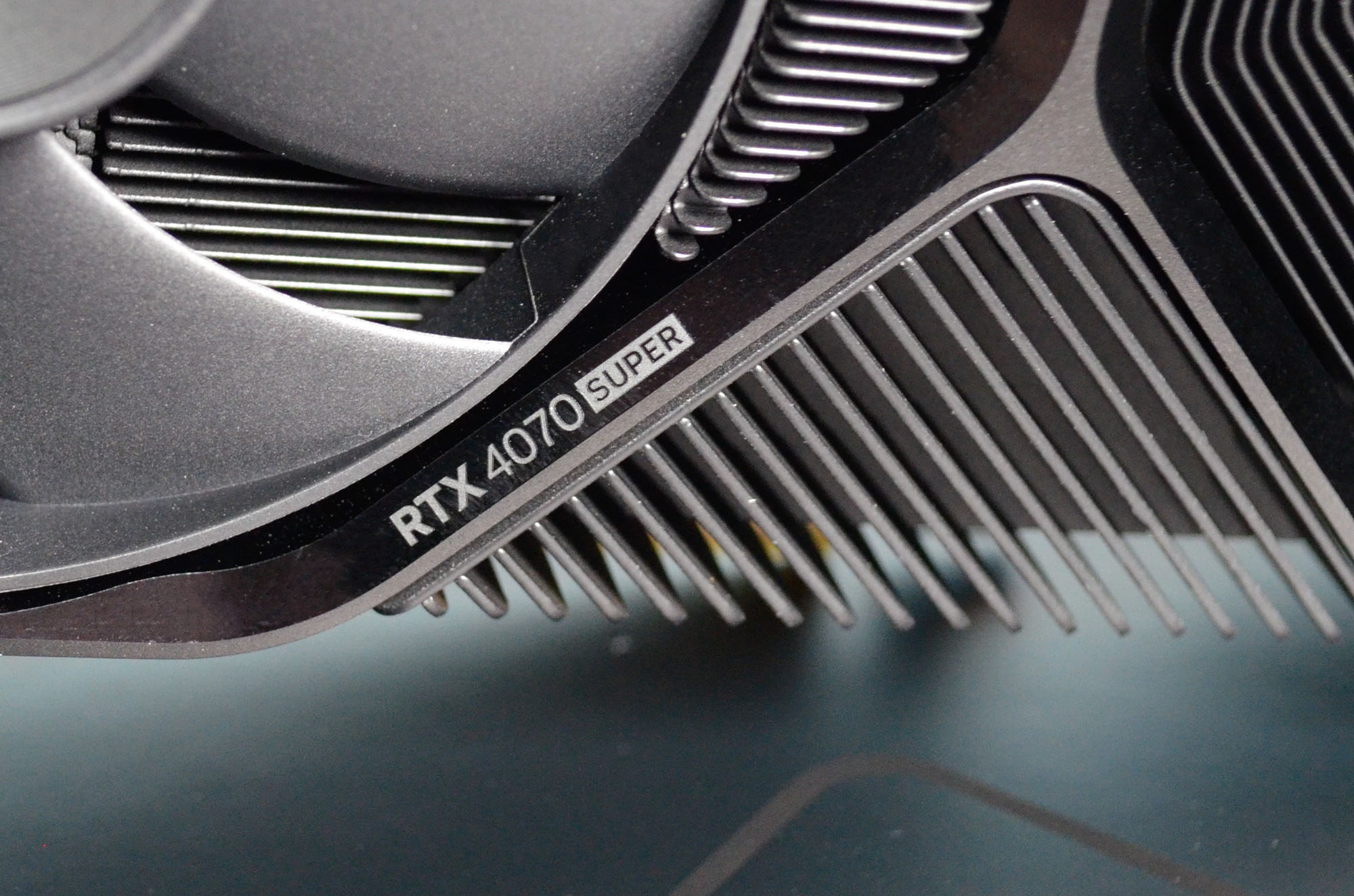
What is Nvidia's best GPU?
If you're talking about pure performance, there's no question that the Nvidia RTX 4090 is the best consumer graphics card on the market, but there's more to being the 'best' than raw performance. The Nvidia RTX 4070 Super, which offers a fantastic balance between performance and price, is our pick for the best Nvidia GPU overall.
Is Nvidia GTX or RTX better?
Nvidia RTX cards are the latest generations of Nvidia consumer graphics, and have advanced features like ray tracing, DLSS 3 with Frame Generation, and more powerful Tensor cores for AI workloads. Nvidia GTX cards are several years old by now, and while they aren't necessarily bad, they aren't nearly as feature rich as Nvidia's more recent RTX offerings.
How to choose the right Nvidia graphics card
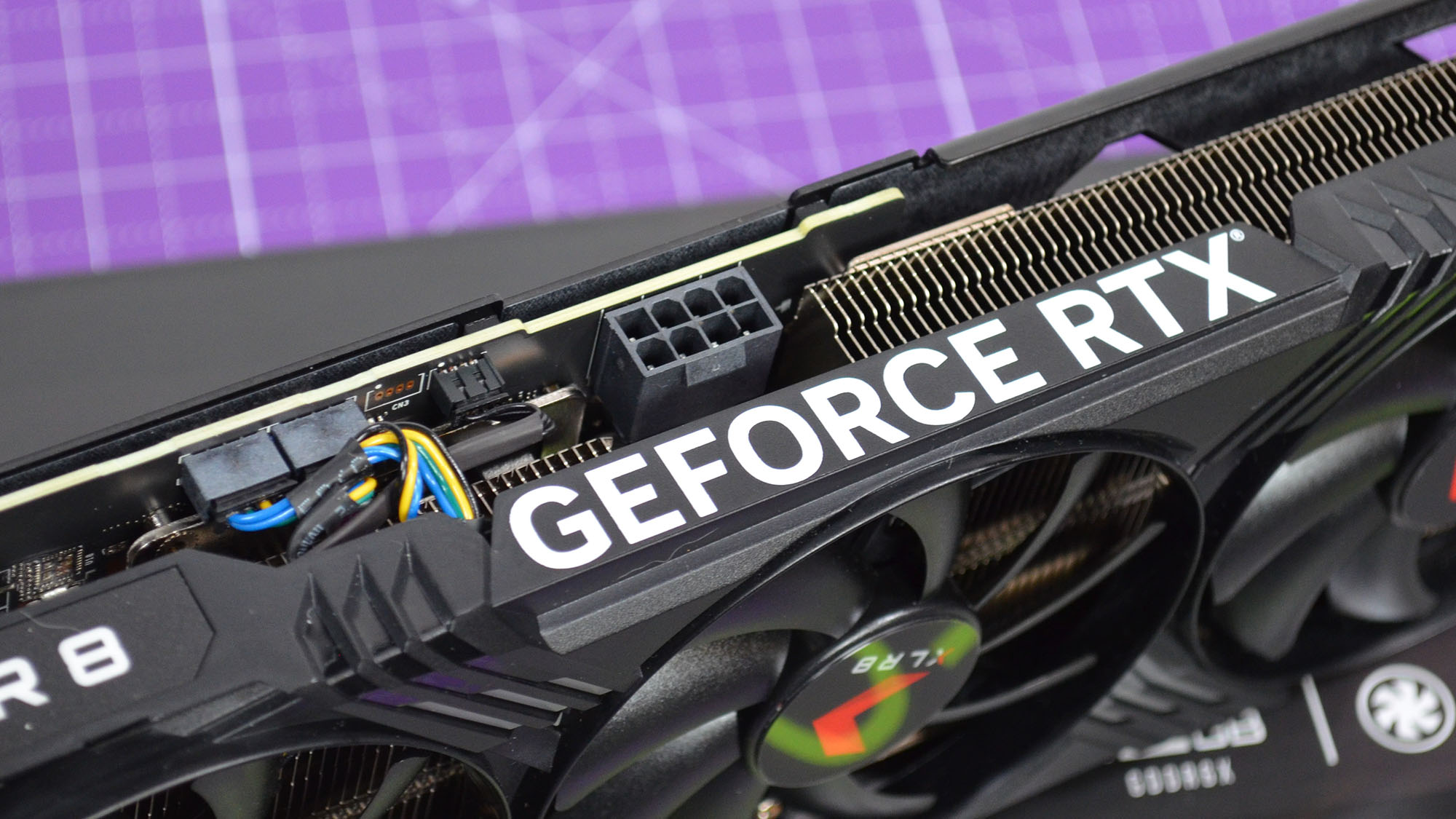
There are a lot of things to consider when choosing an Nvidia graphics card.
First, Nvidia cards are generally more expensive than a comparable AMD graphics card, so price is going to be a big concern. If you're looking for the best deals, the Nvidia RTX 3000-series GPUs are excellent options across a range of price points. Though given how many were gang-pressed into cryptomining operations after their release, definitely stick to new cards rather than refurbished or used unless you know the seller personally or at least trust their products.
As for current-gen cards, on the budget side, the Nvidia RTX 4060 is a great graphics card for 1080p gaming and comes in at an affordable price point, giving you access to features like DLSS 3 and advanced ray tracing cores.
If you're a gamer with some money to spend, both the Nvidia RTX 4070 Super and Nvidia RTX 4080 Super are superb 1440p and 4K graphics cards, respectively.
And if you're a creative professional or you're working in AI, the Nvidia GeForce RTX 4090 is the most powerful card on the market with the advanced hardware you'll need to get your work done. Just be prepared to pay a real premium for the privilege.
How we test the best Nvidia graphics cards
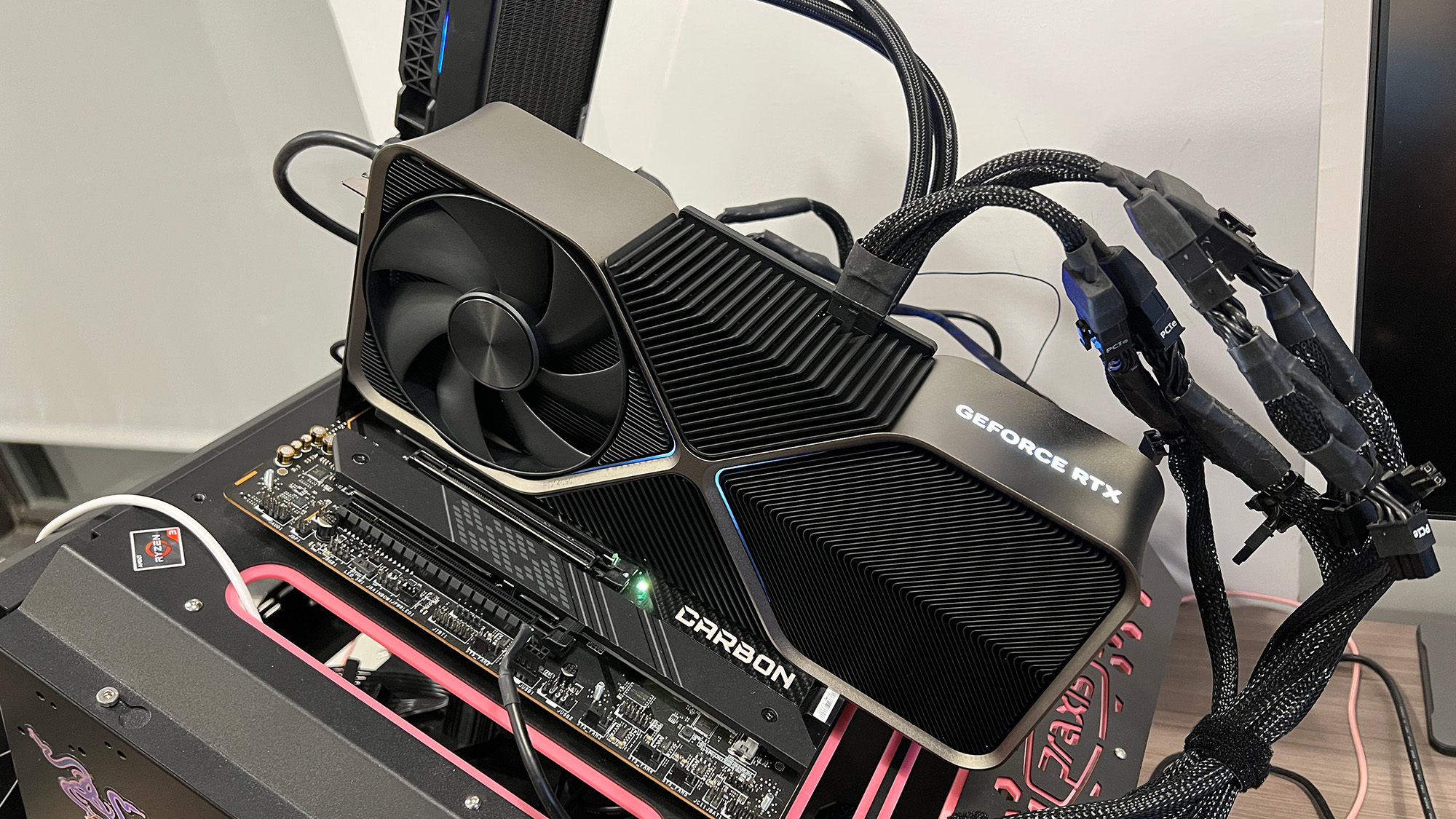
When we review graphics cards, we adhere to a uniform testing methodology, assessing their performance using a set of approximately 8-10 games, testing it at various resolutions and using the latest drivers.
Furthermore, we conduct fresh tests on all current-generation graphics cards each time a new one enters the market, ensuring they are all evaluated using identical hardware. This involves the same processor, memory at an equivalent speed, the same motherboard, and the same SSD. This approach is crucial for accurately gauging the performance of the graphics card itself and facilitates a more dependable comparison with its competitors.
Our thorough documentation covers all aspects, including the graphics card's power consumption and temperature under load. Additionally, we examine the features offered by each graphics card, although these typically do not vary significantly from one generation to the next.
Today's best Nvidia graphics card deals
Get daily insight, inspiration and deals in your inbox
Sign up for breaking news, reviews, opinion, top tech deals, and more.
Darren is a freelancer writing news and features for TechRadar (and occasionally T3) across a broad range of computing topics including CPUs, GPUs, various other hardware, VPNs, antivirus and more. He has written about tech for the best part of three decades, and writes books in his spare time (his debut novel - 'I Know What You Did Last Supper' - was published by Hachette UK in 2013).
- John LoefflerComponents Editor